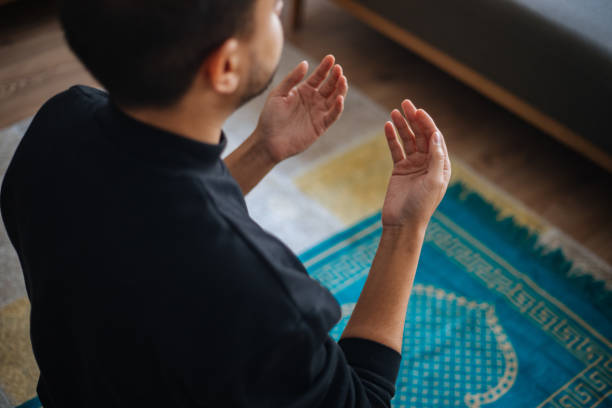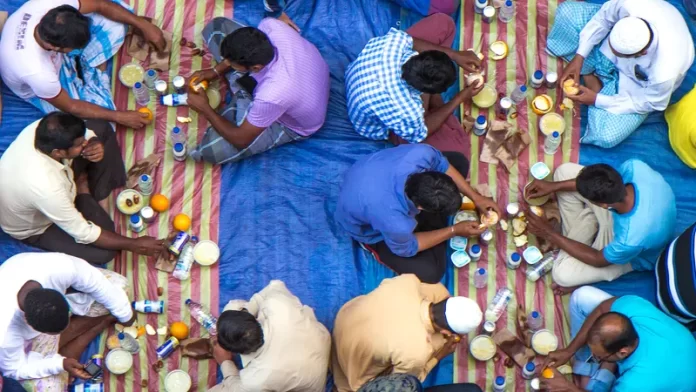Ramadan, the holiest month in the Islamic calendar, is a time of fasting, prayer, reflection, and community for Muslims worldwide. But what about non-Muslims? How do they participate in Ramadan observances? Contrary to popular belief, Ramadan isn’t solely a Muslim affair. It’s an opportunity for people of all faiths and backgrounds to come together, foster understanding, and celebrate diversity. In this article, we’ll delve into creative ways non-Muslims can engage with Ramadan, fostering unity and mutual respect.
Exploring Cultural Exchange

Embracing Ramadan isn’t just about respecting another religion; it’s also an opportunity for cultural exchange and understanding. Non-Muslims can actively participate in Ramadan observances by:
- Attending Iftar Dinners: Iftar, the breaking of the fast at sunset, is a significant aspect of Ramadan. Non-Muslims can join their Muslim friends or neighbors for Iftar dinners, experiencing traditional foods and rituals firsthand.
- Volunteering at Mosques: Many mosques organize community events and charitable activities during Ramadan. Non-Muslims can volunteer their time at these events, helping with meal preparation, serving food, or organizing donation drives.
- Learning About Ramadan: Knowledge is key to understanding. Non-Muslims can take the initiative to learn about the significance of Ramadan, its rituals, and its importance in Islamic culture. Libraries, online resources, and community centers often offer educational materials on this topic.
Supporting the Muslim Community

Ramadan isn’t just a time for fasting and prayer; it’s also a period of giving and charity. Non-Muslims can show their support for the Muslim community during Ramadan by:
- Participating in Acts of Charity: Many Muslims increase their charitable giving during Ramadan. Non-Muslims can contribute to these efforts by donating to Islamic charities, participating in fundraising events, or volunteering at local food banks and shelters.
- Showing Respect: Simple gestures of respect can go a long way in fostering goodwill. Non-Muslims can show respect for Ramadan by refraining from eating or drinking in public during fasting hours, avoiding loud or disruptive behavior, and being mindful of cultural sensitivities.
- Sharing Ramadan Greetings: Just as people exchange greetings during other religious holidays, non-Muslims can extend Ramadan greetings to their Muslim friends, colleagues, and neighbors. A simple “Ramadan Mubarak” (Blessed Ramadan) can convey warmth and solidarity.
Frequently Asked Questions
Q: Can non-Muslims fast during Ramadan?
A: While fasting during Ramadan is not obligatory for non-Muslims, some individuals choose to fast as a gesture of solidarity or to experience Ramadan firsthand. However, it’s essential to consult with a healthcare professional before attempting to fast, especially if you have any underlying health conditions.
Q: How can non-Muslims participate in Eid celebrations?
A: Eid al-Fitr, the festival marking the end of Ramadan, is a joyous occasion celebrated by Muslims worldwide. Non-Muslims can participate in Eid celebrations by attending communal prayers, joining festive gatherings, exchanging gifts, and sharing meals with Muslim friends and neighbors.
Q: Is it appropriate for non-Muslims to visit mosques during Ramadan?
A: Yes, many mosques welcome visitors of all faiths during Ramadan. However, it’s essential to familiarize yourself with mosque etiquette and dress code before visiting. Remember to be respectful of the religious practices and traditions observed in the mosque.
Conclusion
In conclusion, Ramadan is a time of spiritual renewal, community engagement, and cultural celebration for Muslims around the world. Non-Muslims have a unique opportunity to participate in Ramadan observances, fostering mutual understanding, respect, and solidarity. By attending Iftar dinners, volunteering at mosques, supporting charitable initiatives, and showing respect for Islamic customs, non-Muslims can actively contribute to the spirit of Ramadan. Let’s embrace diversity, build bridges of understanding, and celebrate the rich tapestry of cultures that make our world truly vibrant and interconnected. So, how do non-Muslims participate in Ramadan observances? In countless meaningful ways, forging bonds of friendship and unity that transcend religious boundaries.


